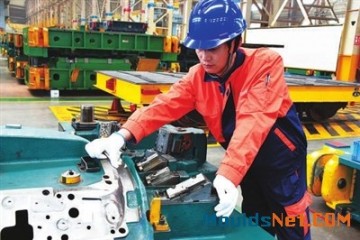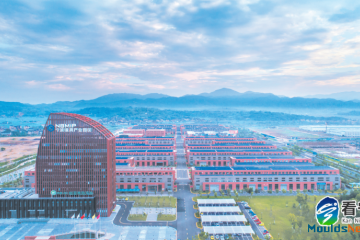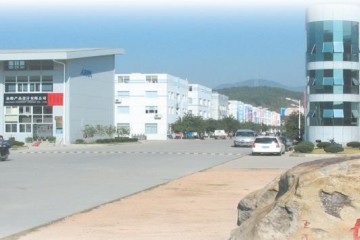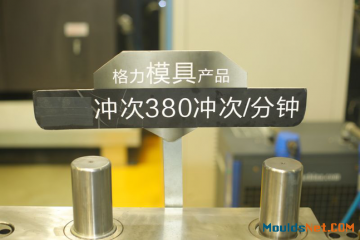国民生产总值 GNP (Gross National Product)
人均国民生产总值 per capita GNP
产值 output value
鼓励 give incentive to
投入 input
宏观控制 exercise macro-control
优化经济结构 optimize the economic structure
输入活力 bring vigor into
改善经济环境 improve economic environment
整顿经济秩序 rectify economic order
有效地控制通货膨胀 effectively control inflation
非公有成分 non-public sectors
主要成分 dominant sector
实在的 tangible
全体会议 plenary session
解放生产力 liberate/unshackle/release the productive forces
引入歧途 lead one to a blind alley
举措 move
实事求是 seek truth from facts
引进、输入 importation
和平演变 peaceful evolution
试一下 have a go (at sth.)
精华、精粹、实质 quintessence
家庭联产责任承包制 family-contract responsibility system
搞活企业 invigorate enterprises
商品经济 commodity economy
基石 cornerstone
零售 retail
发电量 electric energy production
有色金属 nonferrous metals
人均收入 per capita income
使负担 be saddled with
营业发达的公司 going concerns
被兼并或挤掉 annexed or forced out of business
善于接受的 receptive
增额、增值、增长 increment
发展过快 excessive growth
抽样调查 data from the sample survey
扣除物价上涨部分 price increase are deducted(excluded)
实际增长率 actual growth rate
国际收支 international balance of payments
流通制度 circulation system
总工资 total wages
分配形式 forms of distribution
风险资金 risk funds
管理不善 poor management 一个中心、两个基本点one central task and two basic points
以经济建设为中心,坚持四项基本原则(1)社会主义道路(2)党的领导(3)人民民主专政(4)马列主义
毛泽东思想、坚持改革开放
the central task refers to economic construction and two basic points are the four cardinal
principles - adherence to the socialist road, to Communist Party leadership, to the people's
democratic dictatorship and to Marxism-Leninism and Mao Zedong Thought - and persisting in
reform and opening.
改革是“社会主义制度的自我完善和自我发展”。
Reform is "the self-perfection and self-development of the socialist system."
我们辨别的标准是看这样做是否有利于发展社会主义的生产力,是否有利于增强社会主义国家的综合国力,
是否有利于提高人民的生活水平。
The criterion for our judgement is whether the move facilitates the development of socialist
productive forces, whether it helps increase the overall national strength of a socialist
country, and whether it brings about better living standards.
社会主义的最终目标是解放生产力,消灭剥削,消除贫富两极分化,最终达到共同富裕。
The main goals of socialism are the liberation and development of productive forces, the
elimination of exploitation and polarization between the rich and the poor and the final
achievement of common prosperity.
要人们警惕右和“左”的影响,特别是“左”的根深蒂固的影响。
to warn people of the influence of both the Right and the "Left" deviations, particularly
of the deep-rooted "Left" influence.
中国要警惕右,但更要防“左”。
China needs to be vigilant against the Right deviation, but primarily, it should guard
against the "Left"deviation.
资本主义和社会主义并不是以计划经济和市场的多少来划分的。
Socialism and capitalism are not distinguished by the proportion of planned and market
economy.
随着改革的深化,国家指令性计划的范围将会缩小,而市场调节的范围将会扩大。
As the reform further develops, the scope for mandatory state plans will be narrowed,
while the scope for market forces will be enlarged.
初步建立社会主义计划商品经济新体制。
to establish at a preliminary level a new system of socialist planned commodity economy.
各尽所能,按劳/需分配。
from each according to his ability, to each according to his work/needs.
经济结构改革。
reform in economic structure
剩余劳动力。
surplus labor
经营机制
operative mechanism
发挥市场的调节作用
to give play to the regulatory role of the market
经济和法律的杠杆
economic and legal leverages
经济计划和市场调节相结合
to combine economic planning with market regulation
计划经济和市场调节相结合的机制
a mechanism that combines planned economy and market regulation
取消国家对农产品的统购统销
to cancel the state's monopoly on the purchase and marketing of agricultural products
改革重点转移到城市
the focus of reform is shifted to the cities
国家的根本任务是,集中力量进行社会主义现代化建设
The basic task of the nation is to concentrate its efforts on socialist modernization.
逐步实现工业、农业、国防和科学技术的现代化,把我国建设成为富强、民主、文明的社会主义国家。
to modernize the country's industry, agriculture, national defence and science and techn
ology step by step to turn China into a strong and prosperous socialist country with a
high level of culture and democracy.
社会主义经济制度的基础是生产资料的社会主义公有制,即全民所有制和劳动群众集体所有制。
The basis of the socialist economic system is socialist public ownership of the means
of production, namely, ownership by the whole people and collective ownership by the
working people.
国有经济,即社会主义全民所有制经济,是国民经济中的主导力量。
The state economy is the sector of socialist economy under ownership by the whole people;
it is the leading force in the national economy.
国家保障国有经济的巩固和发展。
The state ensures the consolidation and growth of the state economy.
农业 farming
林业 forestry
畜牧业 animal husbandry
副业 sideline production
渔业 fishing
第一产业 primary industry
第二产业 secondary industry
第三产业 tertiary industry
生产资料 means of production
生活资料 means of livelihood/subsistence
生产关系 relations of production
生产力 productive forces
公有制 public ownership
私有制 private ownership
全民所有制 ownership by the entire/whole people
社会主义集体所有制 socialist collective ownership
厉行节约,反对浪费 to practice strict economy and combat waste
外资企业 foreign-funded enterprise
合资企业 joint venture
合作企业 cooperative enterprise
独资企业 wholly foreign owned/funded enterprise
















